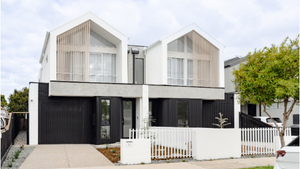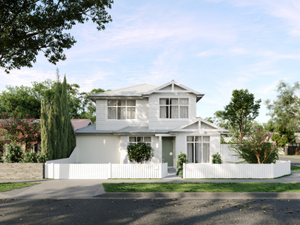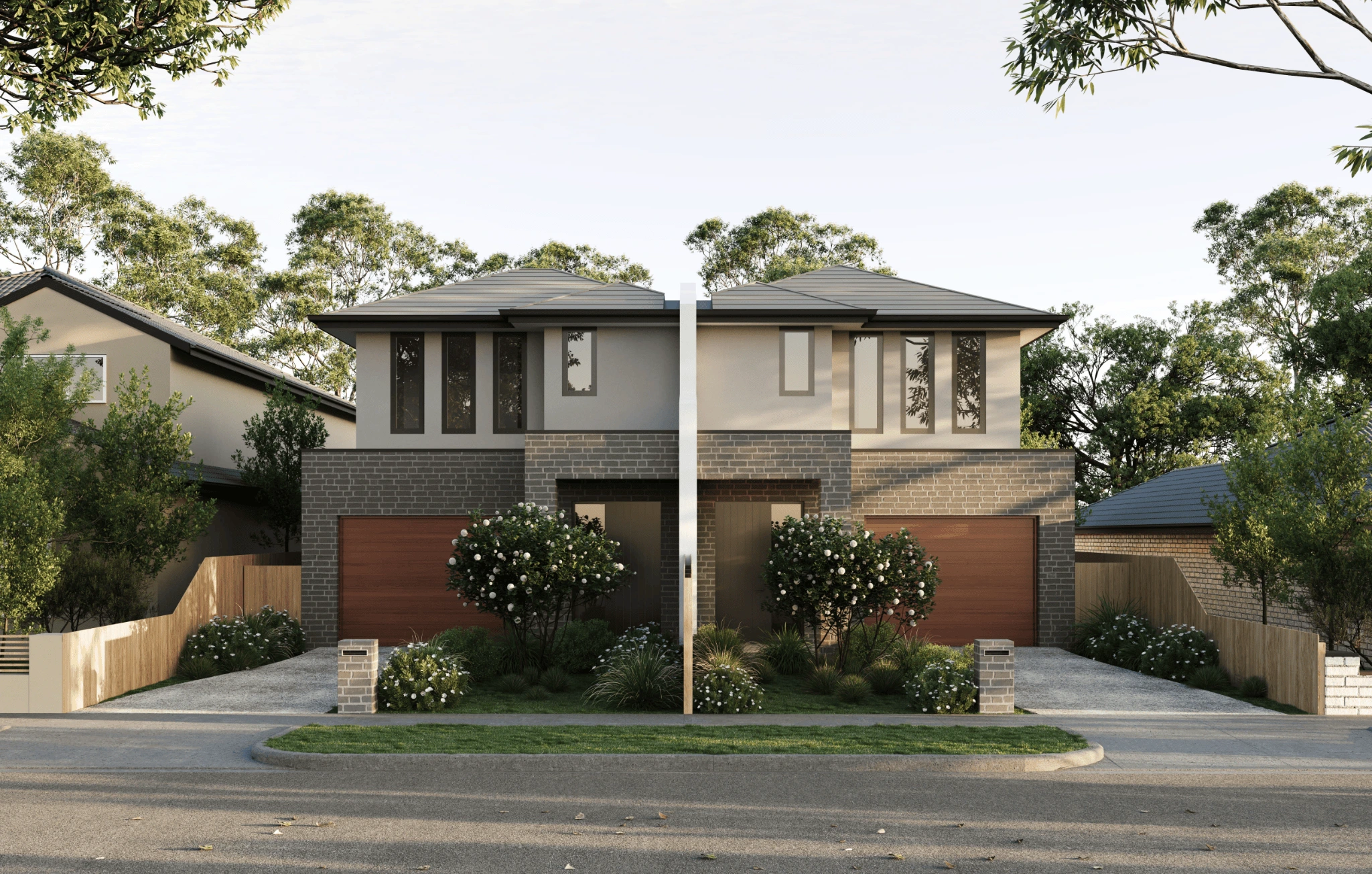
Tip & Tricks
Getting Started With Multi-Unit Development Projects
Multi-unit developments let you turn a single lot into a busy area with many homes. These can be duplexes, triplexes, or big apartment buildings. This kind of project is good for your investment goals because it brings money in and fits with new city living trends. But to get into this, you need to do research and follow local council rules and residential building codes. If you want to know more about how to begin with multi-unit developments and see what these chances can give you, now is a good time to get started.
What Is a Multi-Unit Development?
Multi-unit developments are property projects that build more than one home on a single lot. Instead of just one house, the land is used for several places to live. These can be townhouses, duplexes, or bigger ones like apartment buildings. There is a growing need for housing, and these projects help meet that need. You can use them for selling, renting, or your own home. The thing that sets these projects apart is how they mix design, community engagement, and savings in cost. Multi-unit developments make good use of land and what is there, so they fit with the life in modern cities. Some have shared driveways or use new plans for the homes. Over time, these have become common in the city. But first, you need to get a planning permit from your local council authorities. The local council will check if your project fits with the zoning and codes for living spaces.
Definition and Examples of Duplexes, Triplex, and Townhouse Projects
A multi-unit development turns one piece of land into homes that share some things, like driveways or gardens. This kind of unit development fits different ways people live and helps with the different needs of the population. Some common types are duplexes. These are two homes attached by one wall. Townhouses are another kind. They have two or more levels. This lets people make the most of smaller blocks.
There is also triplex housing. In this, three homes are connected. Sometimes they face the street. Sometimes they share one driveway. There are also apartment buildings. These hold many homes in one tall building. Apartment buildings usually share things like gyms or lounges.
Each of these plans has its own use. Duplexes may be good for families who want to save some money. Townhouses help people in cities use their space better. All these kinds of unit developments are good for different reasons. They are very important now because there is more population growth in cities. These developments help more people have homes where there is not much space.
Common Types of Multi-Unit Construction
There are many choices for multi-unit construction to fit different needs and land sizes. Here are the most common ones:
- Triplex: This has three homes together, and it works well for small or medium-sized plots of land.
- Duplexes: This is where two homes are inside one building, and they share a wall in the middle.
- Townhouses: These are tall homes that fit well on small blocks and are great for city living.
Each type brings its own benefits. Duplexes let people use land in a smart way. Triplex options make the most out of medium blocks. Townhouses mix smart use of space with a modern look, making them great for families or those who work in the city. Picking the right type for you will depend on your money plans, who you want to rent or sell to, and the local council and their council guidelines.
Is Your Block Suitable for Multi-Unit Development?
Not every piece of land will be good for multi-unit buildings, so you need to find out what your block can do. The size, shape, and way your land sits will show you what is possible. Smaller blocks may fit compact homes, while bigger spaces can fit duplexes or even three units on one block.
Your local council is also important to your project's viability. Things like zoning rules and how close you are to other houses matter. For example, a new home could block the sun from a neighbor’s house, and that could change what you can build. By looking closely at your property and learning the council’s rules, you can make plans that fit both your land and all the laws.
Key Factors to Consider
When you look at your block, you need to think about a few important things. First, the local council will have rules that set how many dwellings you can have on the land. These rules also tell you what the design and size should be. If you have smaller blocks, there might be restrictions. But, you may still be able to build smart designs like townhouses that go up instead of out.
Next, the shape of your existing house matters. If your house is old or not used much, you might be able to add more units or even choose to remove it and start again. If you have land around your current home that you do not use, this could be the right place to split up for things like duplexes or triplexes.
Also, don't forget things like slopes or odd-shaped blocks. These can be hard to build on, so you will need special plans to get the most out of your land but keep it safe. If you work with people who know how all this works, like skilled builders and planners, you will get the best advice for your block. This makes sure the number of dwellings you can have fits with what the land and local council allow.
Why Multi-Unit Developments are Booming in Melbourne
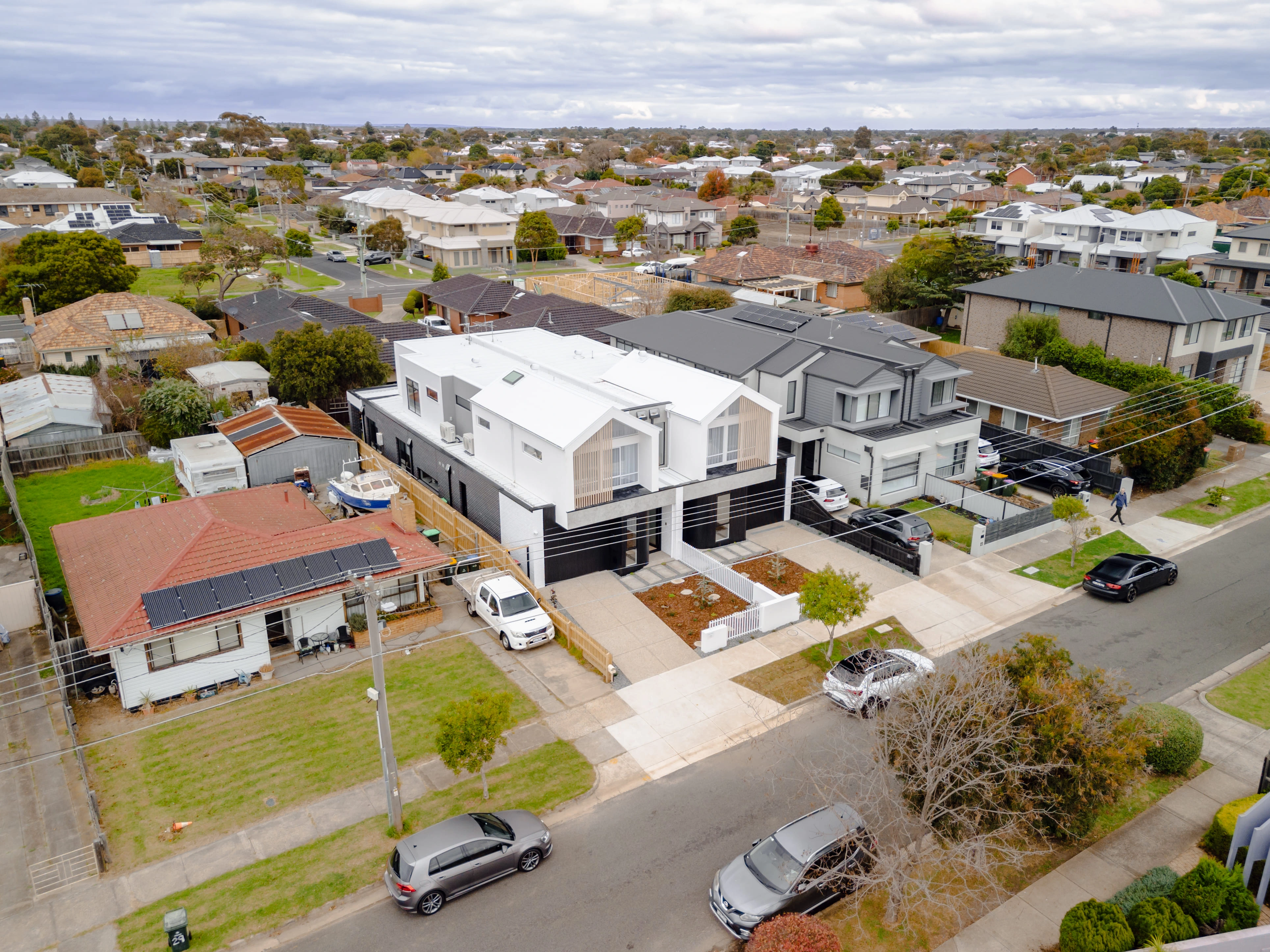
Melbourne is changing fast, with more people moving in and the city getting bigger. The price of a single house has gone up, so many people and their families look at multi-unit developments as a good choice. These projects help fix money worries. They are good for people who want to own a home, and for investors who want a better way to use their money. The city’s rapid population growth makes these multi-unit options even more needed. Right now, these are some of the most profitable ways to invest in Melbourne.
The city also gives good rental returns to those who put their money in real estate. Many developers see Melbourne as a good place for steady income and for raising the value of their investment over time. Because of the strong trends and steady capital growth, people think these projects hold real promise. Next, let's talk about two big reasons why multi-unit developments keep doing well in this changing city.
Affordability Pressures
Melbourne’s population growth has put more pressure on the housing market. More people in the city means that the demand for affordable places to live is going up. Many people can no longer buy a single home because property prices are rising. That is why multi-unit developments are now a good choice. These new homes split the building costs, so that the homes are more affordable. They are also smaller and more practical.
Duplexes and townhouses meet the needs of first-time home buyers. They want a safe and good home, but also need to stick to their budget. When people share things like driveways, it keeps costs down for families and workers.
Multi-unit projects use space well and help people save money. This makes homes easier to get for more people in Melbourne. If you are an investor, you can gain from this trend, as there are now more people who want to rent or buy cheaper homes in Melbourne’s suburbs.
Strong Rental Yields and Capital Growth
Multi-unit developments are now seen as good and profitable investment projects in Melbourne. This city is known for high rent in many areas. If you are a landlord, properties like duplexes or apartments often bring in steady tenants. This helps you get stable money every month. Many places in Melbourne also keep their property price high while you earn rent.
These properties can also grow in value over time, because Melbourne is popular with both renters and buyers. If you invest here, you can grow your money and also get better returns than with many other kinds of property in the city.
As more people move into Melbourne, the need for homes that many can use or rent is increasing. When you offer housing that people want, you can make steady money from rent and also get a good price if you want to sell in the future. This is why multi-unit projects such as duplexes are a key part of any plan if you want your investment projects to be profitable in Melbourne.
Planning and Permits: What You Need to Know
Before you start with your unit development, you must get the right approvals. The local council requires that you have a planning permit. This is the main rule, and it follows strict residential building codes. This process makes sure your build fits the area’s rules, the site’s needs, and how it will affect people living close by.
Planning looks at things like the shade your new building might cast on others and if there is enough space for cars to park. If you work with builders who know how to deal with town planning, things will go more smoothly. They have the skills to prepare the needed documentation for the planning permit. This way, there will be no hold-ups when it is time for construction to start.
Town Planning Process
The start of any good multi-unit project is getting through the town planning process with the local council. The local council authorities look at your plans to check if they fit with zoning rules and what the community expects. To start building, you must get a planning permit from them.
Things like which way the site faces, how much shadow there will be, and how cars will move in and out, all get checked over. It really helps to meet with council planners before you even apply. Talking with them early can stop problems before they slow you down. When you work with an expert property development team, your application will look great and have a better chance of being approved on time.
The right project documentation for your job is something you must have. You need to make sure everything from the allotment plan to the architectural drawings meets all the residential building codes. If you get this part right from the start, you save time and avoid extra costs later.
Subdivision Options
Subdivision makes it possible to split the land and create different titles for things like multi-unit building projects. Here’s how the main types of subdivision can help you reach your building goals:
All these types of subdivisions have strict rules. They need allotment documentation and must get council approval. Good planning with subdivision helps you get the most out of your investment aims. It can keep you from running into issues with paperwork and rules.
Budgeting for Multi-Unit Construction Projects
Creating a budget for multi-unit construction can feel like a big task, but it is key to making sure the project will work. First, look at all the costs you might have. These are things like planning permits, documentation, and the money spent on building each dwelling. Remember to set aside some of the budget for unexpected costs that can come up. When you talk to local council authorities early on, it can help you get faster approvals. They can also explain any extra hidden costs that come from local residential building codes. This can help you know what to expect and have better control over the project’s viability.
What Impacts Multi-Unit Development Costs?
Many things can change the cost of building more than one unit. Some of these are where the site is, the price of workers and materials, how hard the design is, and following rules. The market and how the economy is doing can also change the total money needed and the time to finish the work. If you know about these things, you can plan your budget better.
Hidden Costs to Watch For in Multi-Unit Construction
Unexpected expenses can pop up fast and mess with a multi-unit project budget. Many people do not think about the fees from the local council for approvals or changes you have to make for the planning permit. Extra site preparation, like clearing land and getting it level, can cost more than you first think. You also need to plan for expenses to stay in line with residential building codes. Expert property development advice can cost extra, too. Give your budget a bit of padding for things that may come up. This helps your construction process go well, even when things do not go as planned.
Working With a Multi-Unit Builder for Your Duplexes and Townhouse Projects
Choosing the right builder is important for your unit development project. The right person will understand local council rules and follow them. They will also be good at handling the small details that come with building more than one home on a site. You should pick someone who knows how to work on both single-level and double-story projects. They also need to know current residential building codes well. If you get a builder who is strong in both communication and community engagement, your ideas can better match up with what is possible. This helps keep the construction process smooth from start to end.
Why It Matters
Choosing the right multi-unit builder is very important. The right builder will make the construction process simple and smooth. They also make sure you follow all local council rules and meet all residential building codes. This is good for your investment goals. It also helps get the best design and the best use of the place at the end.
If you want to build something bigger, like a duplex or a triplex, a builder with skill will know how to handle the hard parts. This person will work with you so your ideas and your budget fit together. They will help keep your project on track and help it do well. In short, picking a good builder supports the viability of your plans the most.
What to Look For
A good multi-unit builder should know the local council rules and the small details in residential building codes. You need to see if they have worked on different development projects, like townhouses or duplexes. It is also important that they talk well with you. You want to be sure they listen to your investment goals and care about what the community thinks.
- Proven experience with duplexes, triplexes, townhouses, or apartments
- Knowledge of local council rules in Victoria, Perth, or WA
- Clear communication and commitment to your investment goals
- Effective project management for a smooth construction process
A qualified multi-unit builder ensures your project is completed on time and meets council guidelines.
Design Tips for Triplex, Duplexes, and Townhouse Projects
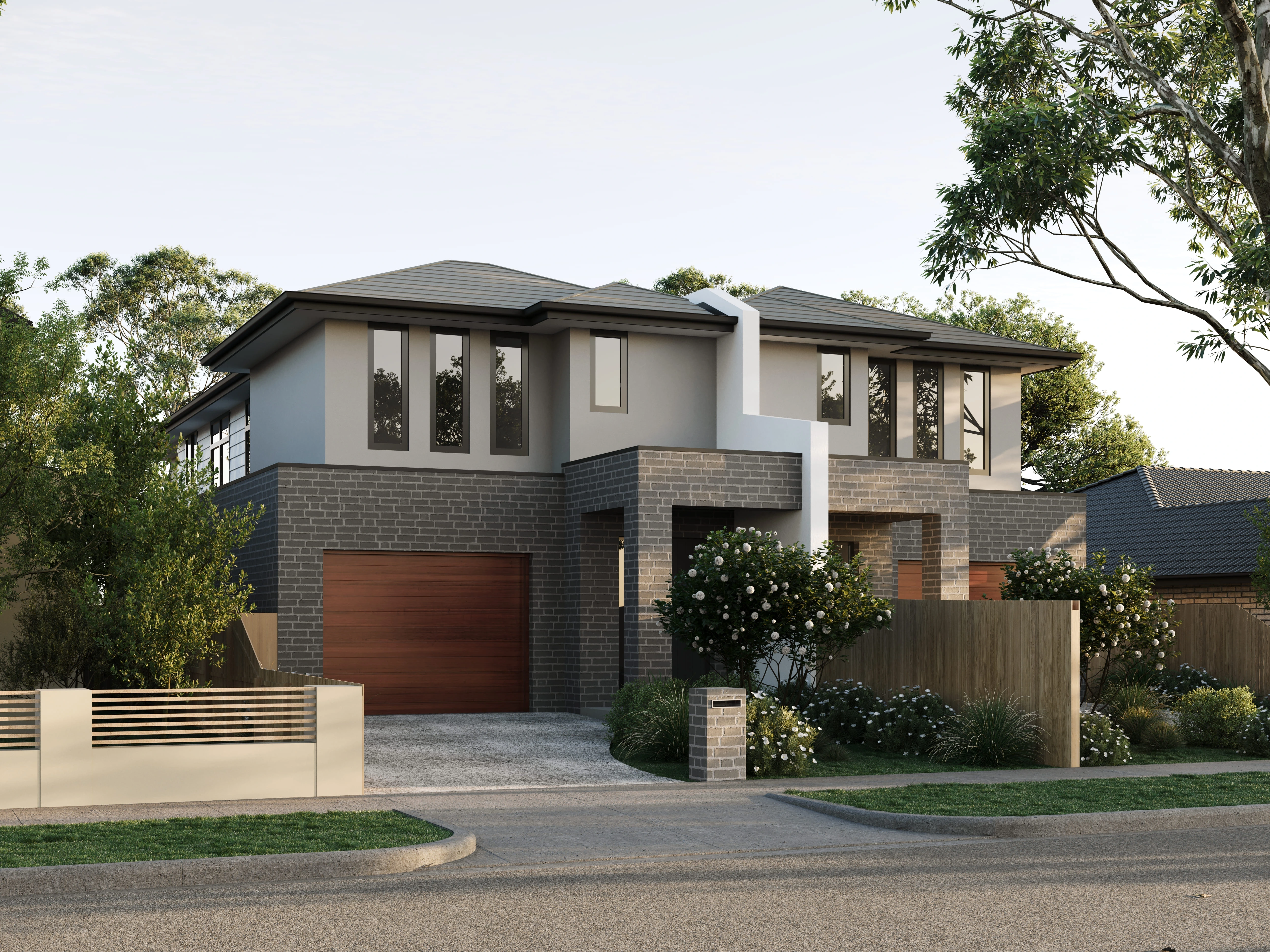
Creating a successful multi-unit project starts with a smart design. You need to balance good looks and how well things work. Using optimal design can help you get the most from the site. It is all about building units that use space in the best way. At the same time, you should not lose sight of comfort and livability.
Talk with people and use community engagement to find out what they want. Some may suggest a common driveway or shared areas. By doing this, you can understand what future residents need.
When you design with the people in mind, the project is more likely to reach your investment goals. It also helps make the area better for everyone.
Maximising Site Yield Without Compromising Liveability
Creating a good balance between the number of dwellings on a site and how nice it is to live there is important in multi-unit projects. Good planning and design can help you fit in more homes while keeping enough space so people feel comfortable. You can include common driveways or shared open spaces. These can help people in the community get to know each other but do not take away people’s privacy.
If you talk with the local council authorities early in your project, it will help you follow residential building codes. By doing this, you make sure your project is allowed and also good for people who want to buy a new home. This is a good way to make the project successful for everyone.
Appealing to the End User
Creating living spaces that people like means you need to know what they want and need. You have to make sure there are good layouts, lots of natural light, and nice finishes. This can help make the place feel better to live in. When you add different unit types, like duplexes or even triplexes, you can reach more people. This could bring in young families, older people, and everyone in between. Talking with the local people before you start building can help make sure the project fits what they hope for. When you think carefully about how things look and how well they work, you give buyers what they want. This will also make your project worth more in the end.
Stages of a Multi-Unit Development
Understanding the stages helps set up a strong foundation for a successful project:
- Planning Permits: Apply to your local council to ensure zoning compliance.
- Design Phase: Create optimal designs that maximise site use and appeal to buyers.
- Project Management: Oversee construction, inspections, and compliance checks for a smooth build.
- Final Handover: Complete occupancy certifications and prepare for sale or tenancy.
If you want to start unit development, you need good planning. First, it is very important to get the right permits from your local council or local council authorities. After you have these, you must make a plan for the design that fits the rules for residential building codes. This helps you make the most of the site. When this is done, project management is needed for the next steps. Good project management will help run the construction process the right way from start to finish. After building, you need to have inspections and fix any issues, so you follow the rules. Taking these steps will help you reach your investment goals and make your project a success.
Common Mistakes (and How to Avoid Them)
Missing important documentation or failing to consult your local council can lead to costly delays. Here are some common mistakes to watch for:
- Not checking zoning rules early: Always confirm what your local council allows for your block before spending on designs or applications.
- Inadequate planning permits and documentation: Missing paperwork can halt your project midway. Ensure all required documents are prepared before submission.
- Ignoring site limitations: Slopes, odd shapes, or small building areas can be a limiting factor. Consult experts to create practical designs that meet council guidelines.
- Underestimating costs: Forgetting hidden expenses like subdivision fees, infrastructure upgrades, or unexpected construction changes can blow out your budget.
- Choosing the wrong builder: A builder with little multi-unit development experience may struggle with complex projects, leading to delays or compliance issues.
- Lack of community engagement: Not considering neighboring properties or community concerns can result in objections that slow approvals.
How to Avoid Them
- Conduct thorough research on council regulations and zoning requirements.
- Work with an experienced multi-unit builder familiar with local council processes.
- Prepare all planning permits and documentation in advance.
- Include contingency funds in your budget for unexpected costs.
- Engage property development experts to guide each stage of the project.
- Communicate with neighbors and the community to build support for your development.
Why Choose Infinity Built for Your Multi-Unit Development?
Infinity Built has local knowledge and offers a way made just for you, so your unit development will fit your needs. The team has real experience and helps you in a way that is made personal for you. They work to make the whole process smooth, with less risk and better results. This makes them the right choice for your project.
Local Experts With a Custom Approach
Working with local experts can really help make your unit development project better. They know a lot about what the community needs and what the local council asks for. This way your project can meet all the right rules. They use a custom approach to give you solutions that fit your ideas and needs. This helps turn your plans into something real and can help you get the most out of your site.
These experts steer you through complex project documentation. They also make designs that look good and will bring in buyers. When you use what they know, your project can be more cost-friendly. Plus, you end up with something that people want to live in. It will stand out for those who will move in after you.
Proven Experience
Experience can really help in unit development and other development projects. Working with local council rules and residential building codes is not easy. If you choose a builder who knows this area well, it will help lower risks and keep the construction process smooth. A builder with a strong background in completed apartment buildings or townhouse projects will show some real skills in picking the optimal design and increasing your project's viability. You will feel better knowing your builder has worked on the same kind of job before. They are ready to deal with problems before they even show up.
Personalised Support
A tailored approach is important when you have a complex project like unit development. If you work with the right experts, they will know your investment goals. They can help you in each part of the construction process. You get support from planning permits to final occupancy. This help always matches what the local council needs and what the community wants.
The customized help makes sure your project has good viability. It also helps you steer clear of problems. In the end, you get a result that fits your goals and leads to a successful outcome.
Final Thoughts
Taking on a unit development can be a big step. With the right approach and way of thinking, it can be exciting. If you do your research and talk to the local council or local council authorities, things can move faster. They will help you with building codes and the permits you need. Use good project management skills to help stop any problems and keep the construction on time. Every project is different. You need to balance making profitable investment projects and working with the community. This is important if you want to do well. Enjoy the process and keep going!
